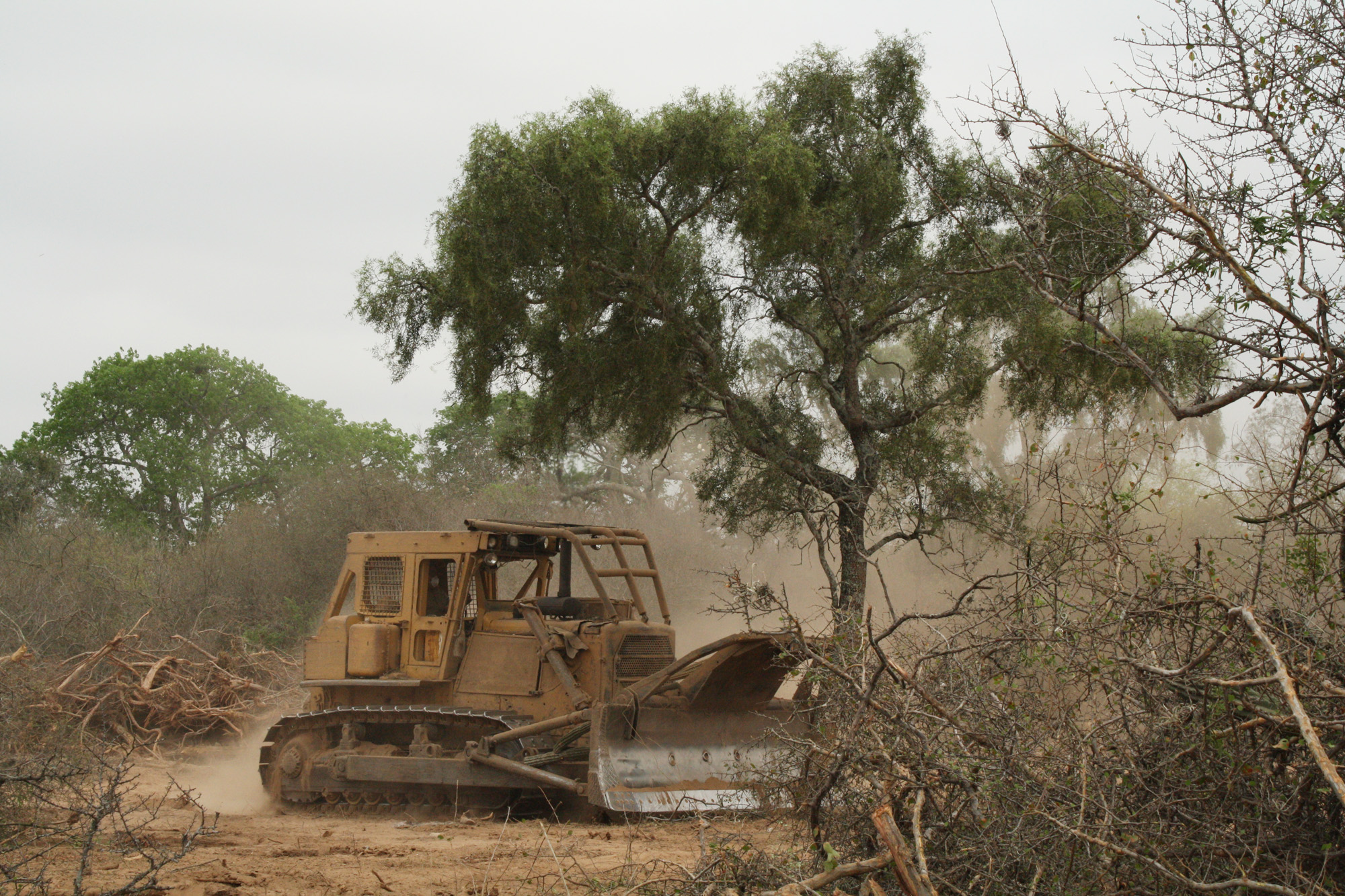Investments by the super-rich drive deforestation
Wealthy individuals are increasingly investing in agriculture. Their investments boost production of plant-based raw materials for human consumption, industrial uses, and animal fodder. The resulting capital flows directly contribute to deforestation in the global South, especially in the tropics. That is the conclusion of a new study by the University of Bern’s Centre for Development and Environment (CDE).
Expansion of cropland is one of the main drivers of deforestation – especially in the tropics. Deforestation not only releases carbon into the atmosphere, but also leads to loss of biodiversity and ecosystems, harming their vital functions.
Particularly important in this context are so-called flex crops like soy, palm oil, and sugar cane, which are used both for direct human consumption and for animal fodder or industrial purposes. Prior studies suggest that cultivation of oil plants – like oil palm or soy – accounts for about 25% of emissions from deforestation worldwide. The flex crop boom is the result of various global socio-economic developments – among them rising inequality. However, the influence of investments by the ultra-rich has so far remained largely unexplored.
Concentrated wealth linked to flex crop expansion
A new study conducted by Graziano Ceddia at the University of Bern’s Centre for Development and Environment (CDE) takes a pioneering look at how agricultural investment by the super-rich impacts the spread of flex crops in the global South. Examining 21 countries in Latin America and Southeast Asia between 1991 and 2014, the study indicates that increasing wealth among super-rich individuals correlates strongly with increasing inflows of foreign direct investment in agriculture in both regions – thus driving expansion of flex crops.
The study also suggests that global investors were attracted to agriculture by the promise of high returns. "Private investors are investing their capital in the agricultural sector in the global South because returns on traditional investments have declined," says study author Graziano Ceddia.
Taken together, the results indicate that growing concentration of wealth in a few private hands has played a crucial role in the expansion of cropland and deforestation in the global South. According to the research, which has just been published in Nature Sustainability, a 1% increase in the wealth of the super-rich led to a 2.4–10% increase in the area under flex crops during the period studied.
Wealth inequality is even more important than income inequality
"The results underscore the importance of studying the impact of inequality on the environment – and not only of income inequality, but also of wealth inequality," says Ceddia. According to the researcher, it was surplus private wealth that first enabled large-scale private investment in agriculture. He further emphasizes that wealth is much more unequally distributed than income. "The study clearly shows that we must reduce inequality in order to minimize environmental risks", says Ceddia. Overall, this new research highlights the need to increase studies on the links between unequal wealth distribution, investments, and environmental degradation.
This project has received funding from the European Research Council (ERC) under the European Union’s Horizon 2020 research and innovation programme (grant agreement No 681518).
Centre for Development and Environment (CDE)CDE is Switzerland’s centre of excellence for sustainable development. One of the University of Bern’s strategic research centres, it is tasked with mainstreaming sustainability throughout the university’s research and teaching. In line with the global Sustainable Development Goals of the 2030 Agenda, CDE develops solutions and initiates transformations that distribute the benefits and risks of globalization more fairly, protect natural resources, and foster well-being worldwide. CDE employs around 100 people from 25 disciplines, has activities in five regions of the global South as well as in Switzerland and Europe, and is currently implementing 74 projects. An important part of CDE’s tasks are education and training. CDE offers courses in sustainable development at bachelor’s, master’s, doctoral, and postgraduate levels, with currently over 500 students. More about the CDE |
Publication:Ceddia M.G.: The super-rich and cropland expansion via direct investments in agriculture. Nature Sustainability. 24. February 2020, https://www.nature.com/articles/s41893-020-0480-2 |
2020/02/25


